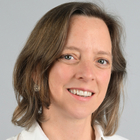The Current Column
The earthquake in Morocco
Sustainable reconstruction needs civil society
Houdret, AnnabelleThe Current Column (2023)
Bonn: German Institute of Development and Sustainability (IDOS), The Current Column of 22 September 2023
The earth has shaken in Morocco, shaking not only homes and minds but also the country’s partly fragile social contract. Nearly 3,000 people lost their lives, entire villages in the Atlas mountains were buried, and many roads leading to the affected villages were impassable for days. The earthquake hit an already highly marginalised and impoverished region, and has once again highlighted the glaring disparities in development in Morocco. The political leadership’s reluctance to communicate in the first 20 hours after the quake was noticeable.
Nevertheless, despite all justified criticism of the relief measures: The army, police and other state organs reacted quickly and pooled their resources to set up field hospitals as quickly as possible, clear roads and protect particularly vulnerable groups such as orphans. As in the initial response to the Corona pandemic, the state has acted quickly on the King's instructions. Is it managing to maintain its legitimacy through and in the wake of the current emergency phase?
We know from our research that three core functions of the state are important for its legitimacy among the population: the state should protect citizens (protection), provide them with access to basic services and infrastructure (provision), but also enable them to participate in decisions. The earthquake challenges this social contract in all these areas and in a region where - despite considerable progress in water and electricity supply- the state has never fulfilled its duty of basic care.
The earthquake is a catastrophe, first and foremost for the people affected, but also for the Moroccan economy, especially regarding the important tourism sector in the Atlas Mountains and Marrakech. Rebuilding the destroyed infrastructure will take years, the cost is currently estimated at 8% of GDP, and for many people there will always be a before and an after. The quake has also shown the enormous potential of the population to stick together despite their differences and pitch in at the crucial moment to alleviate hardship. Civil society has responded quickly and efficiently to local needs and formed a bridge between people and institutions. In doing so, as the MIPA Trust Index 2023 shows, civil society can also rely on high levels of trust from the population, unlike politicians and MPs. This dynamic can be a driver of change in the social contract if (civil) society is given an appropriate role in reconstruction.
After a surprising success at the World Cup, national cohesion is strengthened, and Moroccan football shirts are worn with pride everywhere. The industrial policy 'made in Morocco' and the first electric car 'cent pourcent marocain' are labels of self-confident identity that are also visible abroad, and the new hydrogen policy emphasises national sovereignty. However, these symbols often come up against a bitter reality where poverty and corruption still characterise the daily lives of many people; they come up against the slow burning problems in education and health policies and alarming water shortages in the country. And yet, at this crucial moment, as the earthquake shakes the country, it also creates a unity between all the different social groups: between the female cigarette-smoking graphic designers in the stylish cafés and the old men with their mint tea, between business men, street vendors, housewives and shepherds. Society, often divided on values, is grappling and, in addition to the state’s measures and the army's relief operations, an unprecedented wave of solidarity with the victims is setting in. Civil society organisations, present through years of work even in the most remote areas, have quickly and effectively organised, coordinated and distributed relief supplies. Even abroad, beyond the debates about state aid, strong support is mobilising from renowned football players, actors, associations and individual friends of the country.
The task now is to sustain this impressive momentum through the period of emergency aid and reconstruction, to continue to focus on the ‘WE’. Civil society organisations act in a complementary way to government initiatives, as Karim Tazi, who distributed tons of food aid in a very short time with his organisation 'Banque Alimentaire', also emphasises.
The legitimacy of the government in reconstruction will not only depend on whether it can protect people in the remote, neglected areas in the sense of the social contract and provide access to public infrastructure. Rather, it is precisely the social contract’s third pillar, participation, that holds a lot of potential: more space for the know-how, dynamism and solidarity of (civil) society in reconstruction and in the country's political decision-making processes can enable a more inclusive and sustainable social contract. And Germany's and Europe's cooperation with Morocco can support this by not only mobilising funds for infrastructure development, but also by strengthening governance capacities and involving and promoting civil society.


